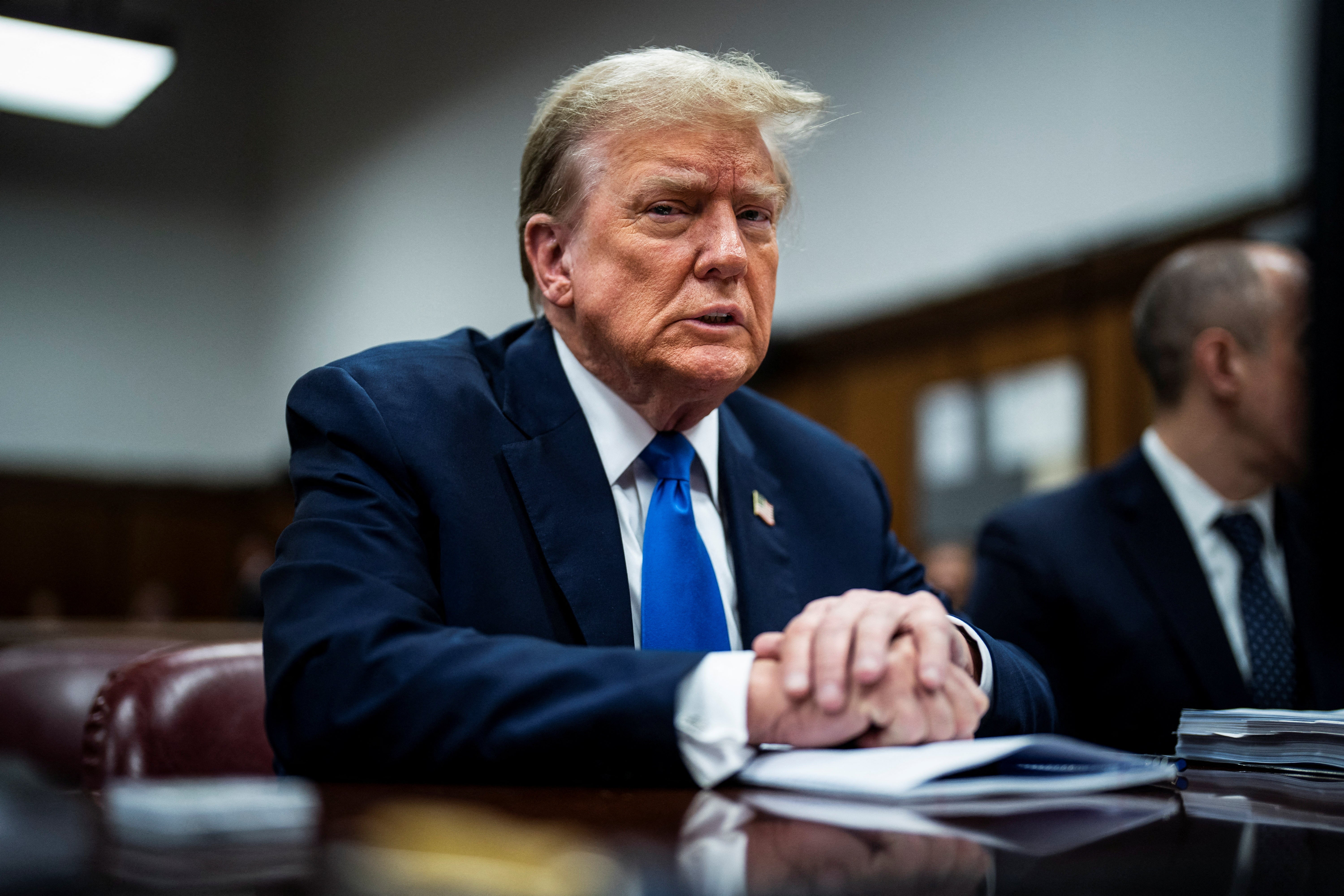Two seated jurors are struck from Trump hush money trial as court struggles to find impartial New Yorkers
One dismissed juror expressed concerns that news reports about her may have helped her friends and family identify her
Your support helps us to tell the story
From reproductive rights to climate change to Big Tech, The Independent is on the ground when the story is developing. Whether it's investigating the financials of Elon Musk's pro-Trump PAC or producing our latest documentary, 'The A Word', which shines a light on the American women fighting for reproductive rights, we know how important it is to parse out the facts from the messaging.
At such a critical moment in US history, we need reporters on the ground. Your donation allows us to keep sending journalists to speak to both sides of the story.
The Independent is trusted by Americans across the entire political spectrum. And unlike many other quality news outlets, we choose not to lock Americans out of our reporting and analysis with paywalls. We believe quality journalism should be available to everyone, paid for by those who can afford it.
Your support makes all the difference.Two jurors who were sworn in to Donald Trump’s hush-money trial have now been dismissed from the case as the court grapples with the difficulty of finding impartial New Yorkers.
Court proceedings got off to a rocky start on Thursday morning as jury selection resumed after a day’s recess on Wednesday.
First, juror No 2 raised concerns that personal details disclosed in her jury questionnaire could be used to identify her – and that her concerns might affect her ability to be impartial in the case.
Then, juror No 4 showed up late to court, and Manhattan prosecutors raised concerns about the truthfulness of his answers during questioning in the court earlier in the week.
Both were dismissed by Judge Juan Merchan, taking the panel back down to five.
Juror No 2, an oncology nurse from New York who had been sworn in during jury selection on Tuesday, told Judge Merchan that her friends, family and colleagues had since sent her news articles that included details about her life – leading them to ask if she was one of the jurors in the trial.
“I don’t believe at this point I can be fair and unbiased,” she told Judge Merchan.
Several questions on the jury questionnaire ask prospective panellists about their jobs, including the names of their current and former employers. Additionally, some news outlets reported on the physical appearance of jurors or gave details about their accents.
As soon as the juror left the courtroom, Judge Merchan asked the media to cease reporting specific details about jurors that could allow them to be identified by their peers. This included redacting answers from the questions asking specifics about their employment.
Judge Merchan told the media that “it kind of defeats the purpose” of having an anonymous jury when they report specific details about people.

Juror No 4, who previously told the court he thought Mr Trump was “fascinating” before he was sworn in as a member of the panel, failed to show up to jury selection before its start time at 9.30am ET.
Prosecutors also raised concerns that he may have lied about his prior criminal history on his jury selection form.
The Manhattan DA’s office said they had found a record of a man with the same name who was arrested for tearing down political advertisements in the 1990s.
When juror No 4 arrived at the court hours later, he had a private conversation with Judge Merchan leading to his dismissal.
The judge sealed that part of the record, meaning the reasons for his dismissal remain unclear.
When he left the courthouse, the man was asked by The New York Times whether he believed he should have been dismissed. He responded: “Nope.”
Now, five jurors remain seated on the panel of 12 jurors and six alternates who will have the power to decide the former president’s fate.
Mr Trump is accused of falsifying 34 business records to cover up alleged hush-money payments made to adult film star Stormy Daniels ahead of the 2016 presidential election.
That cover-up was allegedly part of a catch-and-kill scheme in which Mr Trump is said to haveengaged in an effort to influence the outcome of the election.
Mr Trump has denied all wrongdoing and pleaded not guilty to the charges.
Jury selection will continue on Thursday until 18 New Yorkers have been selected.
Around 500 residents of Manhattan could receive notices to appear for jury duty and potentially serve on the panel.
Each day, a group of 96 potential jurors enters the courtroom to be questioned. First, they are asked if they can be fair and impartial in the case or if they have obligations or medical needs that would prevent them from serving on the trial, which could last for up to two months. Those who say they cannot be impartial or cannot serve are dismissed.
From there, jurors are randomly selected to answer questions from the survey that ask about their relationship status, where they live, their news intake and more.
Judge Merchan has indicated that opening arguments in the trial could begin as early as Monday.